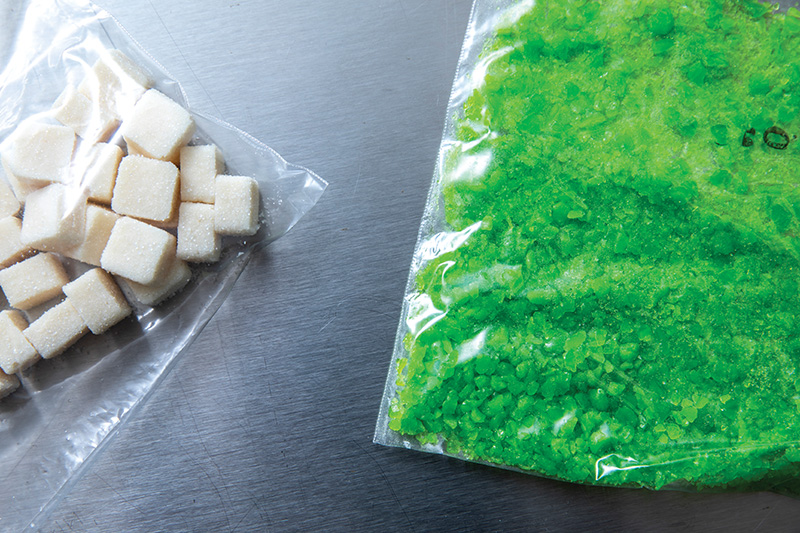
Inside what used to be a medical outpatient facility in Jackson, scientists use about $5 million worth of equipment to test cannabis products for safety, quality, and consistency.
Infinite Chemical Analysis Labs lab director David Egerton holds up a bag of weed bearing a barcode with a chip embedded in it. The bag can be scanned with a barcode scanner or a radio frequency information reader so the product can be tracked through the upcoming process. “See, right now this barcode is used to identify it,” Egerton says. “It’ll probably end up being called Birthday Cake or something like that.”
Infinite CAL is one of a growing number of cannabis testing labs across Michigan. Tests conducted by these labs are part of the standardized requirements for state-licensed growers, extractors, and producers of infused products such as gummies and baked goods. To maintain their licenses, these facilities must have their products tested each time a new batch is grown or made. While the labs fulfill a function within the supply chain, they are not employed by the state.
“Any product, before it hits the retail shelves, has to go through this process,” Egerton says. “That goes for any product, whether it’s flower or gummies.”
The first step in the testing process is to homogenize and weigh the material. It’s turned into a pure, fine powder so it can be tested in the absence of things that might interfere. The final product is put into a tiny vial and is moved through four different rooms for analysis. The scientists test for potency and pesticides, which Egerton says are one of the largest risks for cannabis consumers. Liquid chromatography is used to determine concentrations of cannabinoids, including THC and CBD, in the product.
Gas chromatography helps with pesticide screening, potency testing, and with the profiling of terpenes, the compounds in cannabis that are mostly responsible for its potent smell. Terpenes also give cannabis distinct flavors and are thought to provide different effects across different strains.
Lab staff also test for metals, which can be present from the water used to grow the plant, Egerton says. An entire room within the lab is dedicated to microbial testing to find yeast, mold, and fungus. In September, the Michigan Marijuana Regulatory Agency recalled numerous varieties of flower across nine provisioning centers for failing yeast and mold testing. Meanwhile, some testing sites themselves have come under fire for haphazard protocols. Iron Laboratories of Walled Lake had its license suspended last year and agreed to pay a $100,000 fine for alleged safety violations.
Egerton notes that while some labs are backed by large investing groups, Infinite CAL is backed by two Ph.D.-holding chemists, keeping its focus squarely on the science. “We’re always on the lookout for any error,” Egerton says, “anything that compromises the integrity we operate behind.”
|
|
|













